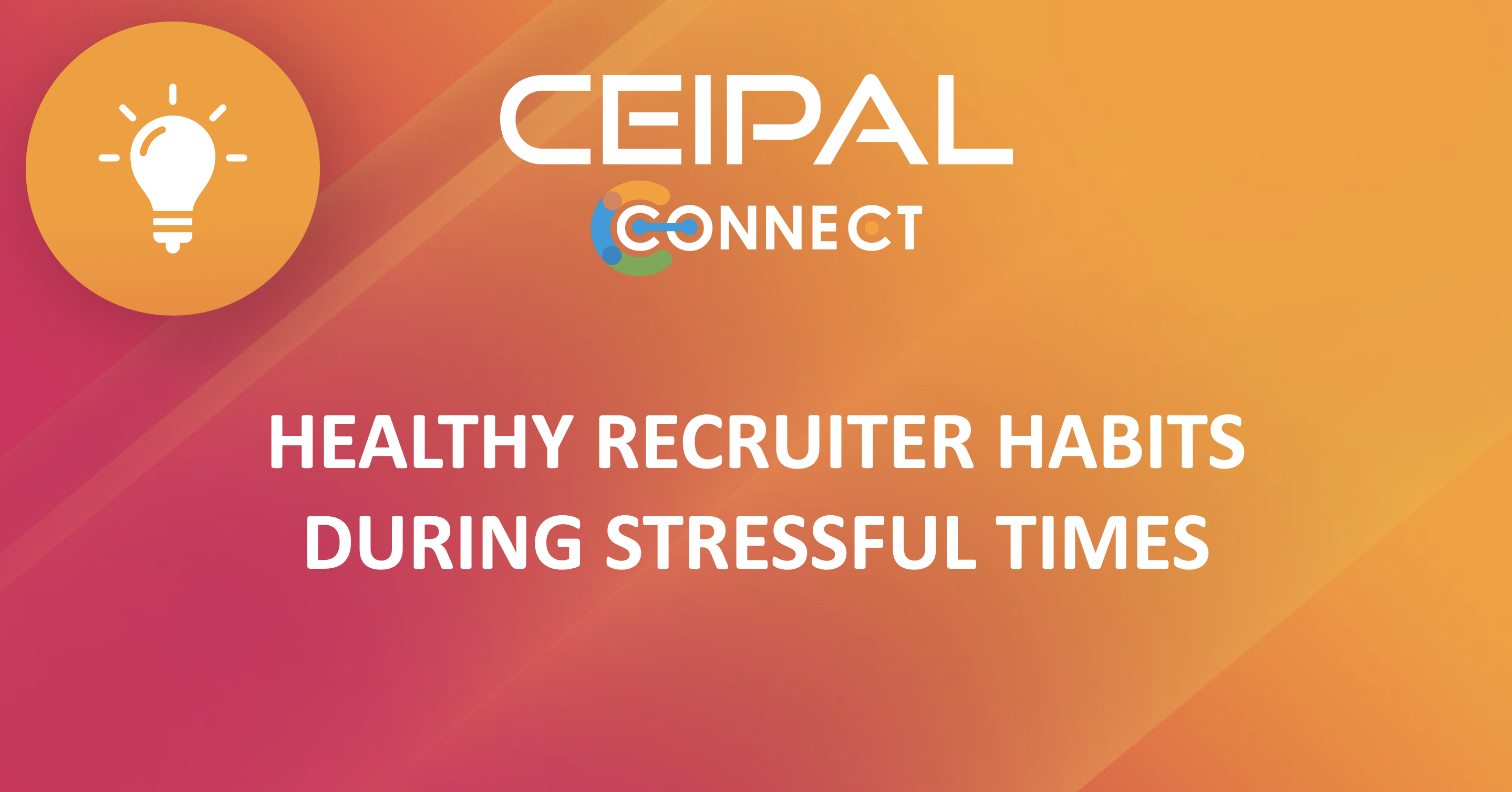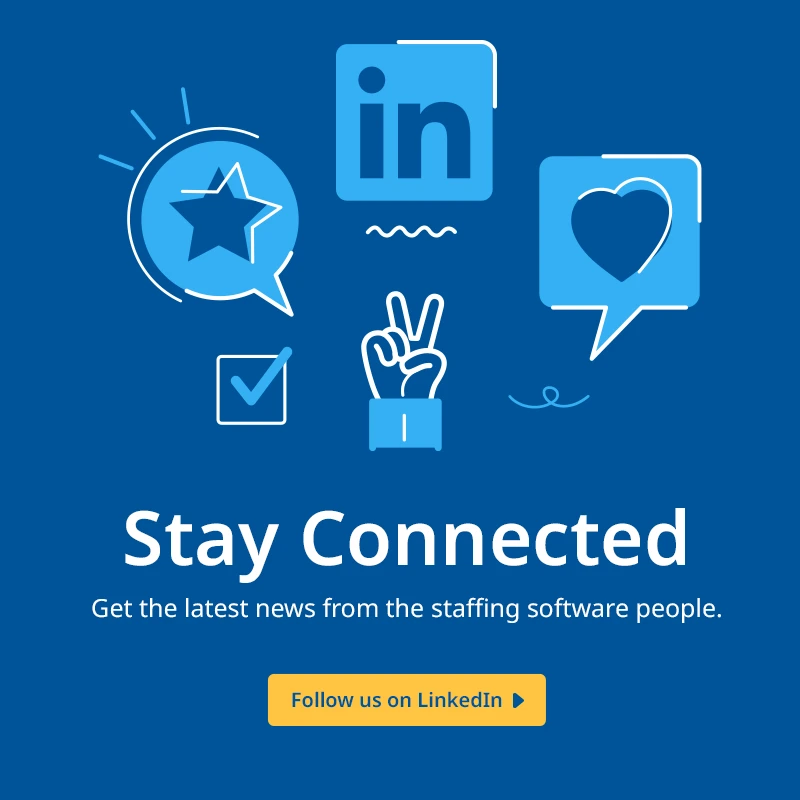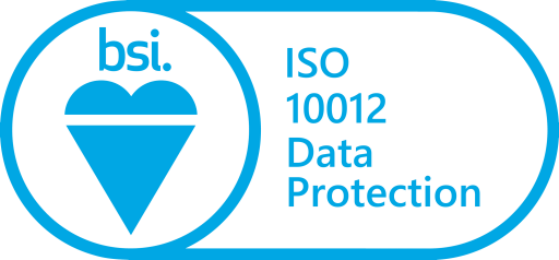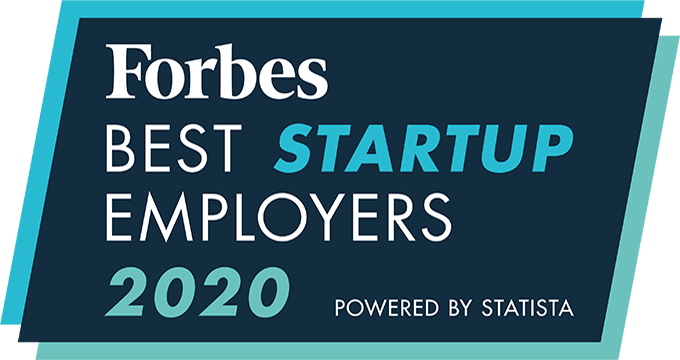Stress & mental wellness is no longer a stay-at-home problem. In fact, the WHO estimated stress health concerns are costing US businesses alone $300 billion / year. This session takes a step back, giving expert advice on healthy recruiter habits during stressful times.
Below is the full recording of this session, as well as a quick summary to learn more about the various topics discussed.
Watch the Replay
Presenter: Gavin Gillibrand (Health & Nutrition Expert)
COVID-19 has led people to worry about their health more than ever; ironically, however, it has also led people to unhealthy behavior. With millions of workers furloughed and laid off, the population has been plunged into an age of anxiety. The result? Weight gain, spiked stress, and a decline in overall health.
To combat this trend of detrimental behavior, health & nutrition expert Gav Gillibrand recommends the “five doctors.”
The Five Doctors of Healthy Recruiter Habits
Join us as we break down the five most important habits to cultivate to live a healthier life.
Get Better Sleep
Lack of sleep is a common result of increased anxiety. And while poor sleep doesn’t necessarily result in weight gain, it does affect the hormones which govern your decision making.
Poor sleep interferes with two hormones: leptin & ghrelin. Leptin increases when you lose sleep, which makes you feel like you’re never satisfied. Ghrelin, too, increases, which means that you’re always hungry. Combined, these two hormones result in an insatiable desire to eat.
Tip: To improve sleep quality, reduce all screen time at least one hour before going to bed. The blue light radiating from your phone and computer negatively affects your ability to get to sleep. Another tip is going to bed at the same time every night. Our bodies respond to regularity, and a consistent sleep schedule will yield better sleep.
Nutrition
Although certain eating habits, such as veganism and paleo diets, are sometimes recommended for weight loss, a balanced diet is the best way to remain healthy & mitigate weight gain.
Generally, an omnivorous diet is best: eating high-quality meat, lots of fruits & vegetables, while keeping processed carbs to a minimum, helps the body receive all the nutrients it needs to function properly.
Vitamin supplements are also a surefire means to help the body. Vitamins B, C, and D, as well as fish oil supplements, are common ways to incorporate essential nutrients into your diet.
Exercise
While it is true that any workout has a short-term stressful impact on the body, exercising regularly contains long-term benefits for the body—including mitigating stress. Consistent exercise is the most important part of a workout routine. Spending 30-45 minutes on light exercise—anywhere from a quick jog, to a walk around the block, to a workout video—3-4 times a week does wonders for your body and your mental health.
Resistance training also holds a wealth of benefits for the body. Incorporating a minor weight routine into your general workout helps tone muscle, build strength, and burn fat off the body.
Water
Slight dehydration is very common in working professionals, who are often too busy to stop and intentionally hydrate. But dehydration affects mental acuity & energy, leading to low work performance and more stress. Dehydration is often linked with weight gain as well. When dehydrated, people often feel hungrier, which leads them to consume more calories rather than addressing the root of the problem—their thirst.
2-3 liters of high-quality water a day is necessary for overall health. Preferably, these liters would come from filtered or bottled water, as tap water is regenerated multiple times and contains unknown trace elements.
Sunshine & Fresh Air
One of the best ways to fight stress is to get outside. Not only does this remove you from the stressful environment—your home office, your crowded house, etc.—it also provides your body with better quality air & Vitamin D.
To get the recommended amount of Vitamin D, most people would have to walk outside naked for one hour every day. Obviously, this is not possible—but prioritizing outdoor time and ensuring you’re maximizing time in the sun is a good place to start. Taking deep breaths of high-quality air is another way to combat anxiety. Breathing from one’s diaphragm, rather than one’s chest, slows down the body, changes one’s mindset, and helps reduce overall levels of stress. This way, you can maintain healthy recruiter habits.









